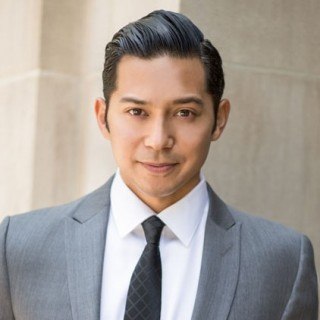
Michael J. Ocampo
Principal Attorney, Michael J. Ocampo, Attorney at Law
Michael is a former prosecutor who has come to learn that the noble ideals of the criminal justice system are striven for more often than they are achieved.
He focuses his practice exclusively on criminal law so that he can help those accused of a crime — often ordinary, everyday people — ensure that their rights are honored and that they receive a fair opportunity to be heard.
Michael served as a deputy district attorney at the Tulare County District Attorney’s Office where he gained experience in jury trials, bench trials in juvenile court, arguing motions in criminal cases, and negotiating plea agreements. Before that, he completed the Volunteer Prosecutor Attorney Program at the Long Beach City Prosecutor’s Office.
Michael received his Law Degree from Whittier Law School where he excelled in interscholastic trial advocacy competitions and served as President of the School’s Trial Advocacy Honors Board. During law school, Michael also worked as a law clerk for the District Attorney’s Offices of Los Angeles, Orange, and San Bernardino Counties.
Michael is admitted to the State Bar of California.
- Whittier Law School
- J.D. (2011)
-

- California State University - Fullerton
- B.A. (2007)
-

- Principal Attorney
- Michael J. Ocampo, Attorney at Law
- - Current
- Associate Attorney
- Law Offices of Susan F. Lindenberg, APC
- -
- Deputy District Attorney
- Tulare County District Attorney's Office
- -
- Volunteer Deputy City Prosecutor
- Long Beach City Prosecutor's Office
- -
- Volunteer Attorney
- Los Angeles County Bar Association's Domestic Violence Project
- -
- Volunteer Attorney
- Public Law Center
- -
- MCLE Article: 11 Most Commonly Asked Questions About Expungement
- The Practitioner, published by the California Lawyers Association
- The Tiered Sex Offender Act
- Orange County Lawyer Magazine, published by the Orange County Bar Association, Vol. 16, No. 4
- Wiping the Slate Clean - Expungements, Sealing Arrest Records, and Certificates of Rehabilitation, WHW Employment Readiness Workshop, Irvine, CA
- WHW - Empowering Employment Success
- Orange County Criminal Defense Bar Association
- Member
- Current
-

- Orange County Bar Association
- Member
- Current
-

- State Bar of California # 283154
- Member
- Current
-

- California
-

- Free Consultation
- Credit Cards Accepted
-
Rates, Retainers and Additional Information
With Michael J. Ocampo, Attorney at Law, there is no hourly billing — just a single, reasonable fee to cover your legal defense. A flat fee helps you stick to your budget, keeps attorney’s fees from getting out of hand, and incentivizes completing the work — instead of the time it takes to do it. Being accused of a crime is stressful enough. Avoid the burden of hourly billing so that both you and your criminal defense attorney can focus exclusively on your case.
- Criminal Law
- Criminal Appeals, Drug Crimes, Expungement, Fraud, Gun Crimes, Internet Crimes, Sex Crimes, Theft, Violent Crimes
- Domestic Violence
- Domestic Violence Criminal Defense, Domestic Violence Restraining Orders
- DUI & DWI
- Q. Ca expunged misdmeanor in 2010. Original conviction In 2008. New employer running LiveScan. Can they use against me?
- A: No.
In general, employers are legally prohibited from asking an applicant if he has an expunged conviction on his record.
However, for some jobs, an applicant must disclose his conviction, even if it was expunged. For instance, persons applying to the military and to work within the criminal justice system must disclose their expunged convictions. So, too, must those seeking a state license in order to work, such as a nurse, a pharmaceutical technician, or an architect. Labor Code 432.7(e), Penal Code 1203.4(a)(1).
If an employer discovers an applicant's expunged conviction, the employer is legally prohibited from discriminating against the applicant because of it. Labor Code ... Read More
- Q. In criminal court, does the prosecutor's witness in a preliminary hearing, have to have first hand knowledge?
- A: At the preliminary hearing, a police officer can testify to things that other people saw and heard.
Normally, a witness can only testify to things that he, himself, saw or heard. But when it comes to police officers during a preliminary hearing, there's an exception.
As long as: (1) the police officer has some personal knowledge of the case; and (2) the officer has at least 5 years' experience as a policeman, then the officer--at the preliminary hearing only--can testify to what someone else told him. (If the officer is a rookie, he can satisfy the experience requirement if he has completed a specific training course that instructs officers in the proper methods of investigating ... Read More
- Q. Is it still self defense if you've already committed a crime. Stole then maced manager for following me out parking lot
- A: A perpetrator of a robbery does not have a right to self-defense. In general, self-defense is available only to those who are faced with imminent danger. CALCRIM 3470.
Shopkeepers, on the other hand, have the right to detain customers whom they believe are stealing. The purpose of this temporary detention is to determine whether the customer did, in fact, steal. This is known as the shopkeeper's privilege. Penal Code 490.5(f).
If a customer shoplifts and uses force during the commission of the theft, he can be charged with robbery, a felony that is punishable by up to 6 years in prison. Penal Code 211, 213(a)(1)(B).
That the perpetrator then maces the shopkeeper after he leaves ... Read More

